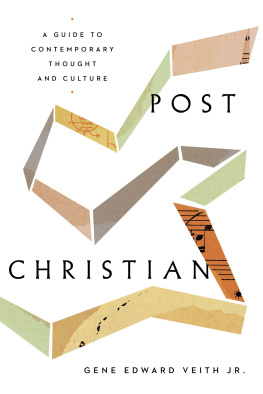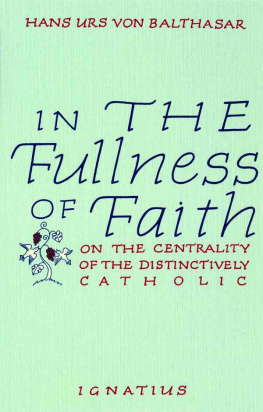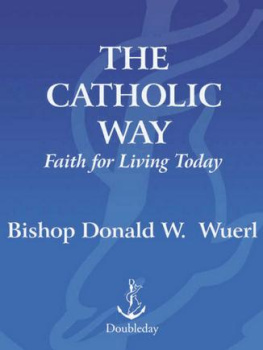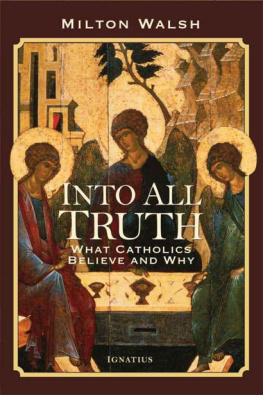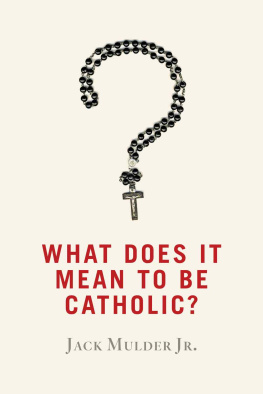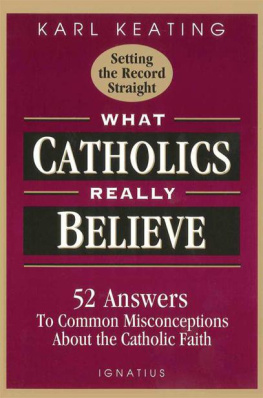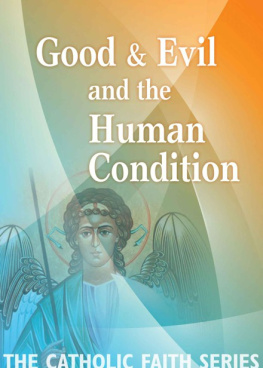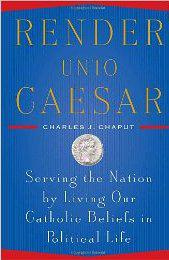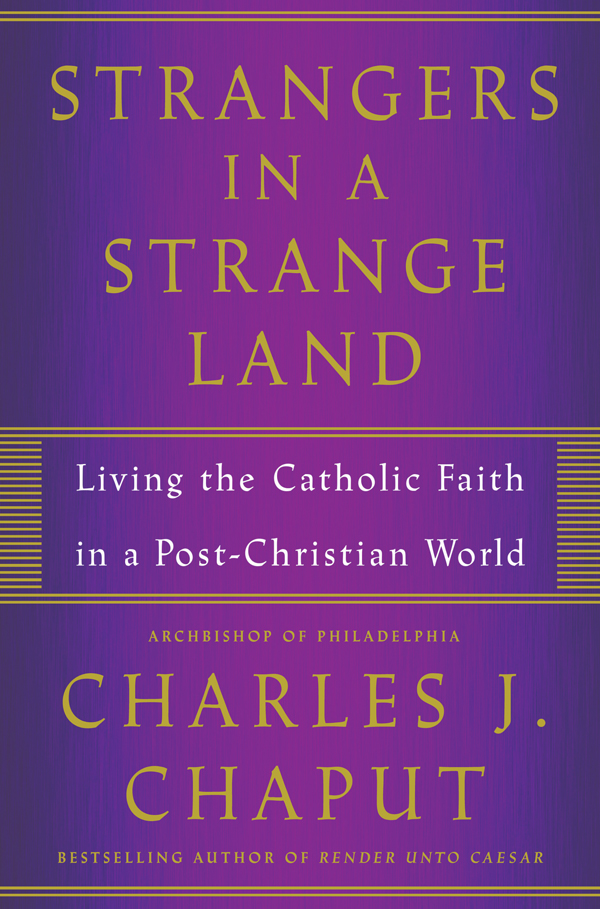Contents
Guide

The author and publisher have provided this e-book to you for your personal use only. You may not make this e-book publicly available in any way. Copyright infringement is against the law. If you believe the copy of this e-book you are reading infringes on the authors copyright, please notify the publisher at: us.macmillanusa.com/piracy.
IN MEMORY OF RONALD LAWLER, O.F.M. Cap.
Mentor and friend
As for me, I believe in a good God and in a life that is on the side of good, a life in which it is not a matter of indifference whether one takes one path or another.
P AUL C LAUDEL
We, the ordinary people of the streets, believe with all our might that this street, this world, where God has placed us, is our place of holiness.
M ADELEINE D ELBRL
Christians have many good reasons for hope. Optimism is another matter. Optimism assumes that, sooner or later, things will naturally turn out for the better. Hope has no such illusions.
That sounds like an oddly nervous way to start a book about our life as Catholic Christians. After all, the Gospel is supposed to be good news, a message of joy. And so it clearly is. The Christian faith is expanding rapidly across the Southern Hemisphere. In Africa, 9 million converts enter the Catholic Church each year. By 2030, if current trends hold, China may have the largest Christian population in the world.
Even in France, once the eldest daughter of the Church and now the secular heart of an aging continent, signs of a living Church persistsmall, implausible, but real. And in the United States, while many parishes are struggling to survive in the nations Rust Belt and eastern cities, many others in the South and West are thriving. The Church in America has an impressive number of movements and new communities energetically alive, and some extraordinary young leaders, both clergy and lay.
In other words, outside Europe, Christianity is very much alive and growing. And its not a passive faith. Jesus left us with a mandate to transform creation.
But doing that, of course, is easier said than done, evenor maybe especiallyin a nation like the United States.
My goal when I wrote Living the Catholic Faith (2001) was simple. I wanted to help Catholics recover the basics of their faith so they could live it more fully. In Render Unto Caesar (2008, 2012) I wanted to help readers apply their religious and moral convictions more vigorously in the public square as good citizens. Looking back, I think much in both books remains useful. But if thats so, why do a new book?
The reason is time. Time passes. Times change. Watersheds happen. In June 2015, in its Obergefell v. Hodges decision, the U.S. Supreme Court ruled that states must license same-sex marriages and recognize similar marriages when lawfully performed out of state. The Court struck down the nations traditional understanding of marriage. That much was obvious. But in its effect, the Court actually went much further. It changed the meaning of family by wiping away the need for the natural relationshipshusband and wife, mother and fatherat the heart of these institutions.
With Obergefell , marriage and family no longer precede and limit the state as humanitys basic social units grounded in nature. Instead, they now mean what the state says they mean. And that suggests deeper problems, because in redefining marriage and the family, the state implicitly claims the authority to define what is and isnt properly human.
Buried in Obergefell is the premise that who we are, how we mate, and with whom we mate are purely matters of personal choice and social contract. Biology is raw material. Gender is fluid. Both are free of any larger truth that might limit our actions. And the consequences of that premise will impact every aspect of our shared political, economic, and social life.
Why so? Benedict XVI explained it simply and well: [The] question of the family is not just about a particular social construct, but about man himselfabout what he is and what it takes to be authentically human When such commitment is repudiated, the key figures of human existence likewise vanish: father, mother, childessential elements of the experience of being human are lost.
Obviously Obergefell is only one of many issues creating todays sea change in American public life. But it confirmed in a uniquely forceful way that we live in a country very different from that of the past. The special voice that biblical belief once had in our public square is now absent. People who hold a classic understanding of sexuality, marriage, and family have gone in just twenty years from pillars of mainstream conviction to the media equivalent of racists and bigots.
So what do we do now?
Patriotism, rightly understood, is part of a genuinely Christian life. Were creatures of place. The soil under our feet matters. Home matters. Communities matter. The sound and smell and taste of the world we know, and the beauty of it all, matter. As G. K. Chesterton would say, theres something cheap and unworthyand inhumanin a heart that has no roots, that feels no love of country.
Thus, believers dont have the luxury of despair. And the idea that we can retire to the safety of some modern version of a cave in the hills isnt practical. Our task as Christians is to be healthy cells in society. We need to work as long as we can, in whatever way we can, to nourish the good in our country and to encourage the seeds of a renewal that can enliven our young people.
Americans learn from an early age that democracy is the gold standard of human governance. And its advantages are obvious. Every citizen has (in theory) an equal voice in the course of our nations affairs. But if America is (or was) exceptional, something unique in history, its not because this country is a New Jerusalem, or a redeemer nation, or has a messianic mission. Those things are vanities and delusions. When John Winthrop wrote his famous homily for Puritan colonists nearly four hundred years ago, the city upon a hill he imagined building in the New World was something genuinely new. It was the hope of a common life that had its foundations in humility, justice, mutual support, and the love of God.
That biblical vision has always helped shape the American story. The very idea of the person has religious origins. Even the concept of the individualthe building block of Western political lifehas its early seeds in biblical faith. America has always been a mixed marriage of biblical and Enlightenment ideas.
The trouble is that liberal democratic states also have a less visible, internal dynamic. In a democracy, political legitimacy comes from the will of sovereign individuals. Their will is expressed through elected representatives. Anything that interferes with their will, anything that places inherited or unchosen obligations on the individualexcept for the government itself, which embodies the will of the majority of individualsbecomes the target of suspicion.
To protect the sovereignty of individuals, democracy separates them from one another. And to achieve that, the state sooner or later seeks to break down any relationship or entity that stands in its way. That includes every kind of mediating institution, from fraternal organizations, to synagogues and churches, to the family itself. This is why Alexis de Tocqueville, the great French observer of early American life, said that despotism, which is dangerous at all times, [is] particularly to be feared in democratic centuries.


